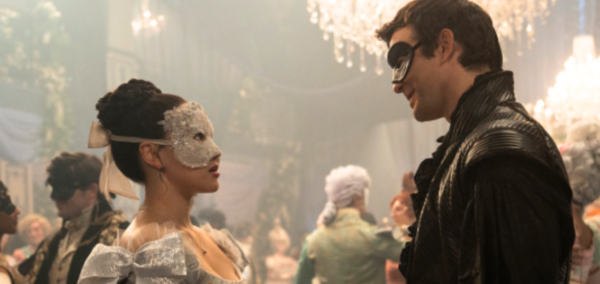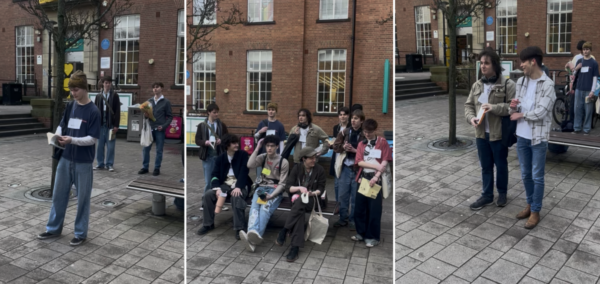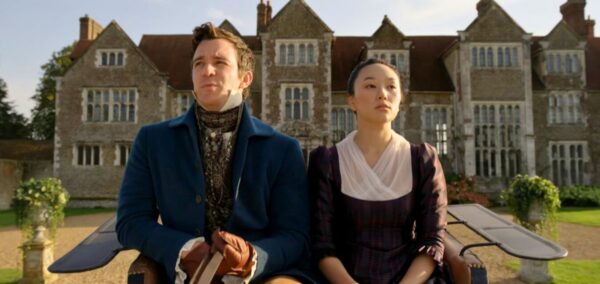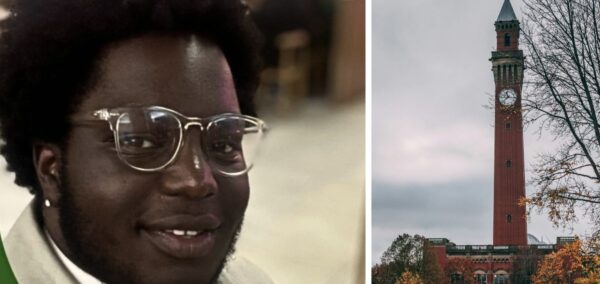
Celebrating Black History Month with seven of Bristol’s most influential Black alumni
From olympians to international activists, Bristol has seen so many exceptional Black students
This Black History Month, we are celebrating the amazing Black students who have attended university in Bristol throughout history. There have been so many inspiring Black students, past and present, here in Bristol, and we have picked a few to celebrate.
From scientists to actors to Olympic long jumpers and world-class netball players, whether at UOB, UWE, or Bristol Old Vic, Bristol has seen so many talented Black students whose stories are super important and deserve way more attention.
While October is coming to a close, there is still time to celebrate Black History Month, with this year’s theme being “Reclaiming Narratives”. Next Tuesday (29th October), the Caribbean Society is hosting a Sip and Paint featuring pictures and paintings based on Black History Month. Tickets are still available here.
Eboni Usoro-Brown
Eboni Usoro-Brown graduated from Bristol Uni with an LLB Law degree in 2009 before staying at Bristol to complete the LLM postgrad and then the LPC at UWE to qualify as a solicitor. Alongside her studies, she played netball nationally, for Team Bath, before playing internationally for England. Eboni represented England at four consecutive Commonwealth Games, securing bronze in 2010 and the historic gold medal in 2018, which saw England defeat Australia 52-51.
After giving birth to her daughter Savannah in 2020, Eboni made it her goal to compete in one last Commonwealth Games, which she succeeded in, representing England in Birmingham in 2022 before announcing retirement from domestic and international netball. Alongside this impressive sporting achievement, Eboni completed a training contract, worked at Allen & Overy in Australia while playing professional netball, and is now a fully qualified solicitor as well as a sports pundit.
Nkosazana Dlamini-Zuma

via YouTube
Nkosazana is a South African politician and activist who attended Bristol University in 1978 while in exile from South Africa. Her activism against apartheid meant she faced growing police intimidation, causing her to flee. Here at Bristol, she completed her Bachelor of Medicine degree before going on to work in hospitals in England and Swaziland (now Eswatini) for several years.
Still an activist at heart, she became the chairman of the ANC (African National Congress) Youth Section in Britain, and she founded and directed the Health Refugee Trust in 1988. Upon return to South Africa, Dlamini-Zuma was appointed as health minister in President Nelson Mandela’s cabinet in 1994. To this day, she is part of many influential South African national committees and has played a crucial role in the groundbreaking initiatives to combat HIV/AIDS and improve healthcare access for all South Africans.
Jazmin Sawyers
View this post on Instagram
Jazmin Sawyers is another example of a world-class athlete who, like Eboni Usoro-Brown, balanced being a full-time law student the same time. Sawyers attended Bristol University while carrying out her long-jump career, and found out that she had achieved a 2.1 in her law degree moments after securing her place on Team GB for the Rio 2016 Olympics for the event.
She has been building up her repertoire since, and in 2023, she won her first major senior title at the 2023 European Indoor Championships. Jazmin also appeared on The Voice UK in Feb 2017, securing Will.i.am as her coach after the blind auditions, but was eliminated in the sing-off rounds.
George Odlum

George Odlum with Queen Elizabeth II, Prince Philip and a fellow student (image courtesy of the University of Bristol’s Special Collections archive).
George Odlum was a Saint Lucian politician who was the first Black student in any UK university to become president of the Students Union. George studied economics at Bristol University and graduated in 1959, going on to study at Oxford University, and then becoming a leading voice in politics at a time of national liberation for St Lucia. While he never became Prime Minster in St Lucia, many would consider him one of the country’s most influential people of the 20th century
Patrick Aryee
Patrick Aryee studied cancer biology at Bristol Uni, graduating in 2007, then completing a master’s at UWE in science communication. After graduating, he launched his career in the BBC where he worked on several wildlife programmes as a researcher and then turned to presenting. In 2021, Patrick published his first book, 30 Animals That Made Us Smarter, and hosted his own show on Sky, Patrick Aryee’s Wild World. Reflecting on his time at Bristol, Patrick said: “I’ve always been fascinated by how things work and studying at Bristol gave me the opportunity to nurture this curiosity and develop it into a passion for the natural world”
Silas Adekunle

via X @silas_adekunle
Silas Adekunle is an entrepreneur who studied robotics technology at UWE. In his third year, he co-founded and became the CEO of Reach Robotics, a gaming company that creates robots for both entertainment and education. The company became so successful and popular that it partnered with Apple in 2018 to launch Mekamon, a gaming platform that incorporates the use of advanced robots. Silas is involved in projects that unlock AI’s potential in the Global South, and is doing really important work with his recent start-up Awarri. In 2018, he was named in the exclusive Forbes ‘30 under 30’ technology list. You can watch an interview UWE carried out with Silas here.
Paul Stephenson OBE
While not a past student, Paul Stephenson holds honorary degrees from both UWE and UOB after being awarded his OBE “for his services to equal opportunities and to community relations in Bristol”, and definitely deserves a mention. Stephenson was instrumental in the Bristol Bus Boycott of 1963, leading the campaign against Bristol Omnibus Company, who refused to recruit Black people on the basis of their race. This campaign caught major media attention and inspired similar movements across the country. Stephenson’s political activism contributed to the passing of the 1965 Race Relations Act, which banned racial discrimination in the UK.
Related stories recommended by this writer:
- In conversation with Lily Davison: University of Bristol graduate and Below Deck crew
- Saving the planet and our money: How to sustainably decorate your university room
- Pascha is back at the University of Bristol after making the final in the Great British Sewing Bee
Featured image via Instagram @jazminsawyers



















